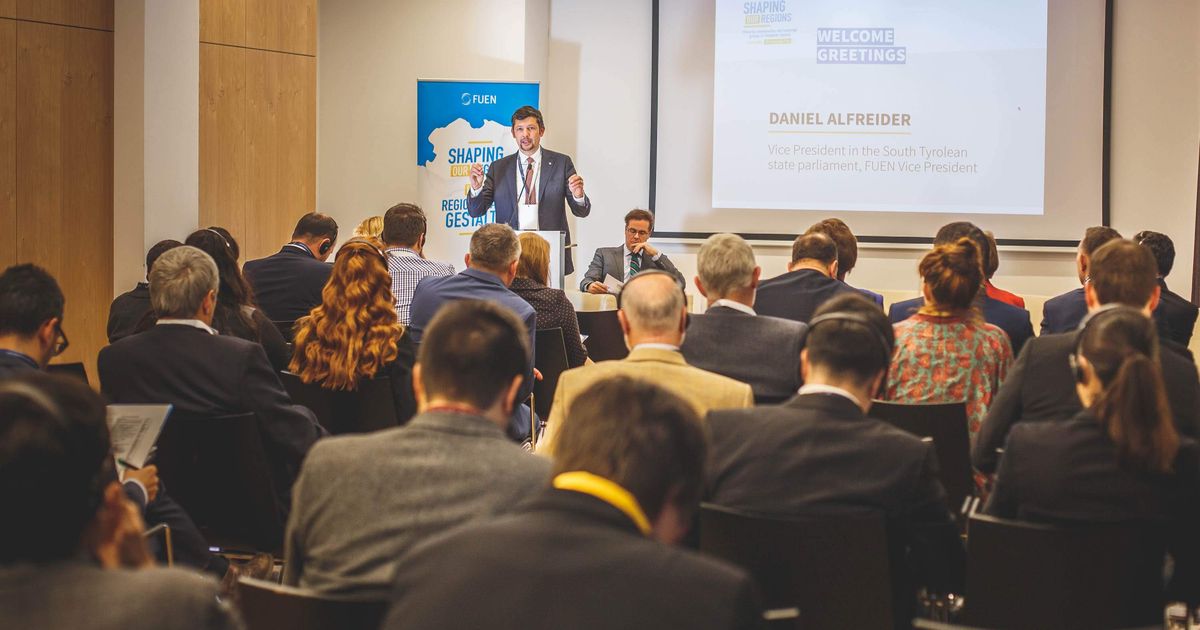
Shaping our Regions: FUEN gathered the minority and minority-friendly regions in South Tyrol
20.12.2018The 3rd forum of the minority and minority-friendly regions, entitled Shaping our Regions, organised by FUEN and hosted by South Tyrol on 13-14 December 2018 has been a great opportunity to learn from each other’s successes and struggles. The participants representing regions from all over Europe debated the role of the state in helping or hindering the development of less favored regions and how can the regional authorities overcome these issues. In this regard some good practices were presented that can boost the development of minority regions. The positive role of bilingual and multilingual administration and cooperation methods were also among the topics of the conference.
Vice President of the South Tyrolean State Parliament and FUEN Vice President Daniel Alfreider welcomed the participants to Bolzano/Bozen „We believe in our project. we can all draw power from cooperation. If we join our forces, we can move forward, we can overcome the fears that block us” – he said. He added that in this critical situation for Europe South Tyrol has to build a small Europe inside Europe, where the German, Italian and Ladin groups have found a way to collaborate and strive together.
FUEN President Loránt Vincze said that the FUEN is entitled not only to talk about culture and language issues, but also about the everyday life of minority communities, the way they live in their homelands, and the most closed form that can relate to our communities are the regions. He also reminded the audience that one of the most important points of the Minority SafePack Initiative is about the changing of the regional policies of the EU in order to take into consideration the minority communities.
In his keynote speech on regional policy and minority languages Dr. Régis Dandoy, professor at the Ghent University and expert on federalism, decentralization and regional policy presented the EU policies regarding the use of regional and minority languages. Despite saying to opposite, minority and regional languages are not really the priority of the EU. But still, the situation may be better than we think it is – he said, also showing some areas where improvements should happen. Regarding the Regional policies and cohesion policy interaction with regional authorities should be available in minority languages. The common agricultural policy is another area where documents should be available in regional and minority languages, and the Digital Europe programme should also consider this aspect.
In the panel moderated by Johan Hagmann, Economic and Societal Challenges in our Homelands Daniel Alfreider presented a short history of South Tyrol and how they figured out their system of having percentages in public sphere for speakers of German, Italian and Ladin instead of using a territorial approach for language use. He said that the communities need to work together, and the young generation has to do everything to explain that every language is an added value.
Aleix Sarri, coordinator of the international politics for the Catalan president’s office presented the economical situation of the region, pointing out the negative effects political and fiscal centralization can have on a region, as it keeps sucking away human and financial resources. Their solution is to open the Catalan economy more and more to the world and to depend less on Spanish economy. He also mentioned the advantages of speaking the Catalan language, as 70 % of Catalans have relatives living outside the region.
Róbert Grüman, Vice President of the Covasna county council identified the major problems local leaders face: the lack of funds for instance to put bilingualism in practice, the lack of competences as they live in a centralized country where regions don’t have administrative competences, and the lack of a good perception about the Hungarians living in the region. Tourism is one way to fight this: the county has a strategy to put in value the 160 mansions and manors, nature and traditions as a way of changing the image and show the local reality to Romanian tourists.
Meto Nowak, speaker of the State Commissioner for Sorbian and Wendish Affairs in Brandenburg talked about the problems the minorities face in the historical region of Lusatia. The fast deindustrialisation after 1990, the closing of mines and factories in the region led to an existential crisis for the them. Another problem they are facing is that the Sorbians themselves are not all aware of their societal and linguistic value, being a small community with a language used only in the region.
The panel entitled Experiences and Interventions to Boost Development started with Petra Szávics’s introduction. The regional policy expert said that in less favored, multiethnic regions often there are divisions between minorities and majorities, reflected in social, economic or political fields. But the active promotion of multilingualism can benefit not only individuals: it can also be an added value for the society in which people live. Multilingualism is a source of innovation through creativity and thus a driver for economic growth and social cohesion – said the expert.
Martha Stocker, Councillor of South Tyrol highlighted their successful education model, in which every community has its own school system instead of having bilingual schools. She said that this is a region strongly focusing on European issues, aware of its past and history,and it acts as an interface between countries. Ydwne Scarse from the Youth of European Nationalities presented the situation of Fryslan, where 92 % understands Frisian, but only 13 % can write, and presented some best practices, the European Capital of Culture being one of them, in which they used Frisian language and culture as an asset, creating a positive vibe. Wienke Reimer from Graenseforeningen, Denmark presented their innovatory project to form young minority leaders, called Minority Changemakers. Sebastian Wladarz, State Managing Director of East and Central German Association talked about Upper Silesia, where the German language attracts investors from German-speaking countries. However, the lack of a continuous education system from kindergarten to university obstructs Upper Silesia’s development into a flourishing minority language region. This would be necessary in order to exploit the full potential of the region.
In his concluding remarks Paul Videsott, Dean of the Faculty of Education of the Free University of Bozen pointed out that in Europe only 16 minorities number more than 300,000 members while 87 minorities less than 5000 members, and these small minorities should need parapolitical, societal interventions in order to survive. He also highlighted the positive role minorities can ave in the economical development of a region, which can be an element to bring on board the majority. He also considered the advantages of multilingualism an unique selling points for the majority.
On the second day of the conference Anna Magyar, rapporteur of the European Charter for Regional or Minority Languages in the Council of Europe presented the raport made for the 25th anniversary of the Charter, which is much more than an anniversary report, as it analyzes the challenges, results and presents best practices. Her goal was to have a sight on the regional level, because the practice is the most important, and the regional and local level has to have the tools to put the put the recommendations in practice.
In the panel about the added value of bilingual and multilingual administration Daniel Alfreider presented how the small Ladin community is supported by the majority in South Tyrol: it has its own office, competence and school system, and its associations, music, sports, cultural activities are financed. He pointed out that this is a trilingual community also in the written form, street signs are trilingual and public administration also offers services in three languages. Óscar-Adriá Ibánez Ferreté from Plataforma per la Llengua presented the activity of the organisation working for the normalisation, revitalisation of the Catalan language, promoting linguistic rights in public administration, justice and business. 86 % of Catalan speakers use the Catalan in their relation to regional authorities, 82 % with local governments, but only 50 % with state administration located in Catalunya.
Former MEP Inaki Irazabalbeitia Fernandez presented the situation of the Basque language, spoken in three different regions, with different status in all three. In the Basque country’s public administration Basque is a service language and not a working language, and he presented their plans to change that. Sergiu Constantin, researcher on minority rights at Eurac Research talked about the importance of some contextual factors like the size and concentration of the speakers of a regional language, and also the approach of the state to language rights, which can be a territorial or linguistic approach (with thresholds), or the combination of the two.
The last panel presented cooperation methods and best practices in the field of language use. Dr. Michele Gazzola, lecturer at Ulster University said that in order to implement successfully multilingualism in public authorities, targeted policy instruments need to be used, which need to be evaluated through effective monitoring indicators. Dr. Colin Williams, professor at the University of Cardiff presented the revitalisation of the Welsh language as a positive example. Salvaging a language is good not only for the minorities, but for all, it is something that also the majority can take pride in, he said. Dr. Tom Moring, professor at the University of Helsinki talked about the dangers of smaller and lesser used languages lagging behind in the digital era, concluding that we need to put minority languages into digital mode: if they are not available online, they will die out.
In his concluding remarks FUEN president Loránt Vincze noted that the conference gave the participants lots of ideas to think about, and this kind of cooperation has to continue. „Minority rights and languages need some innovative approaches. If we try to change the perspective and approach the issue of language use in public administration from the perspective of good services and economic development, we may succeed easier and avoid the clashes with the majority” – he said.
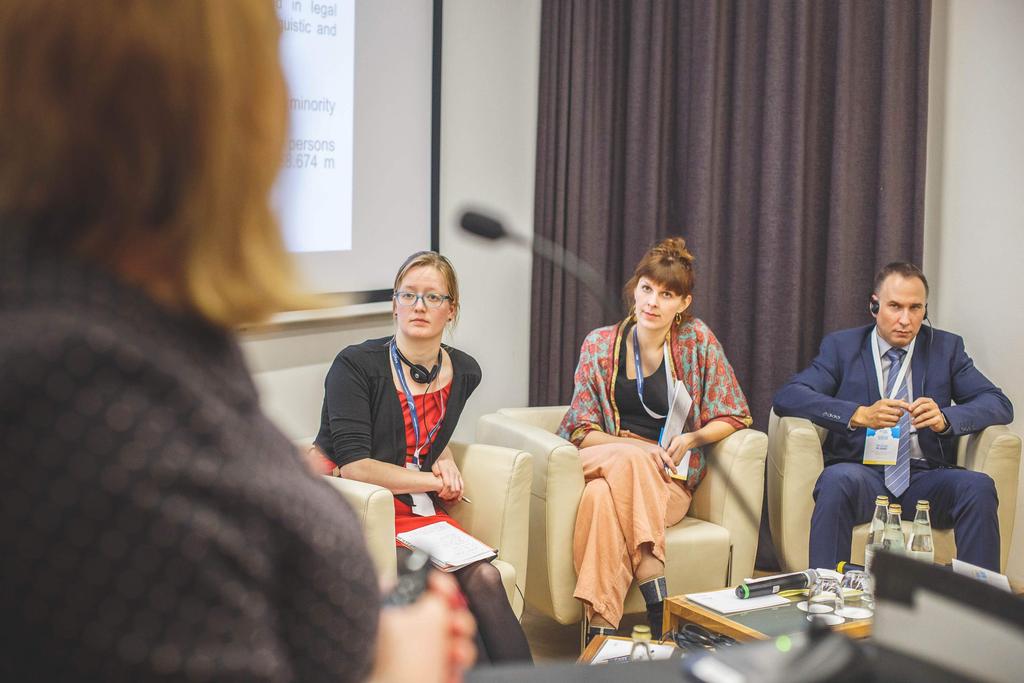
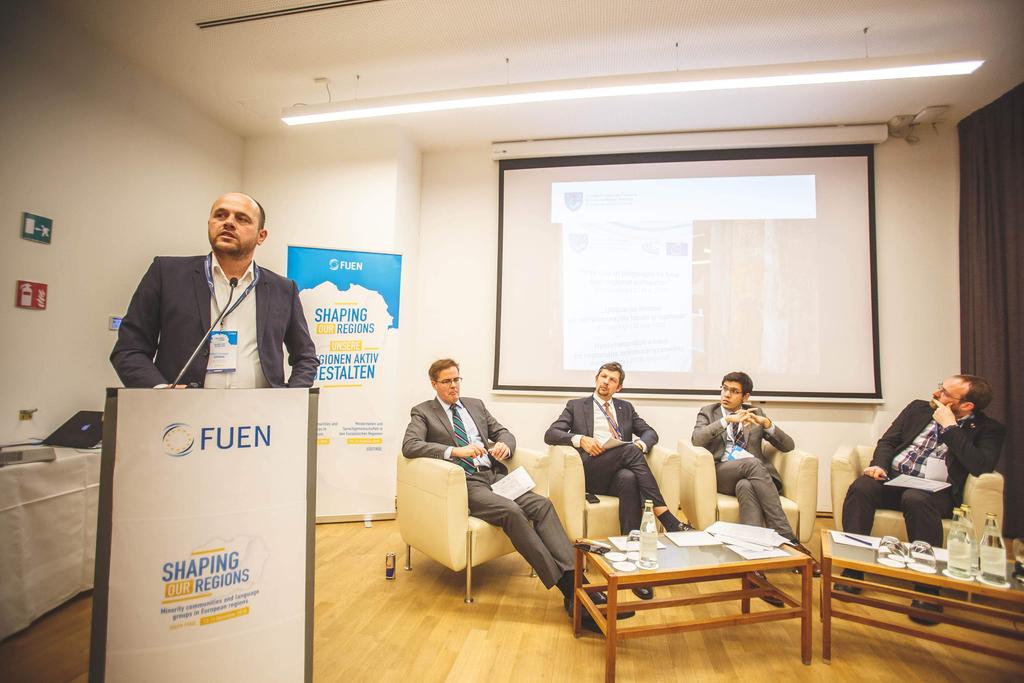
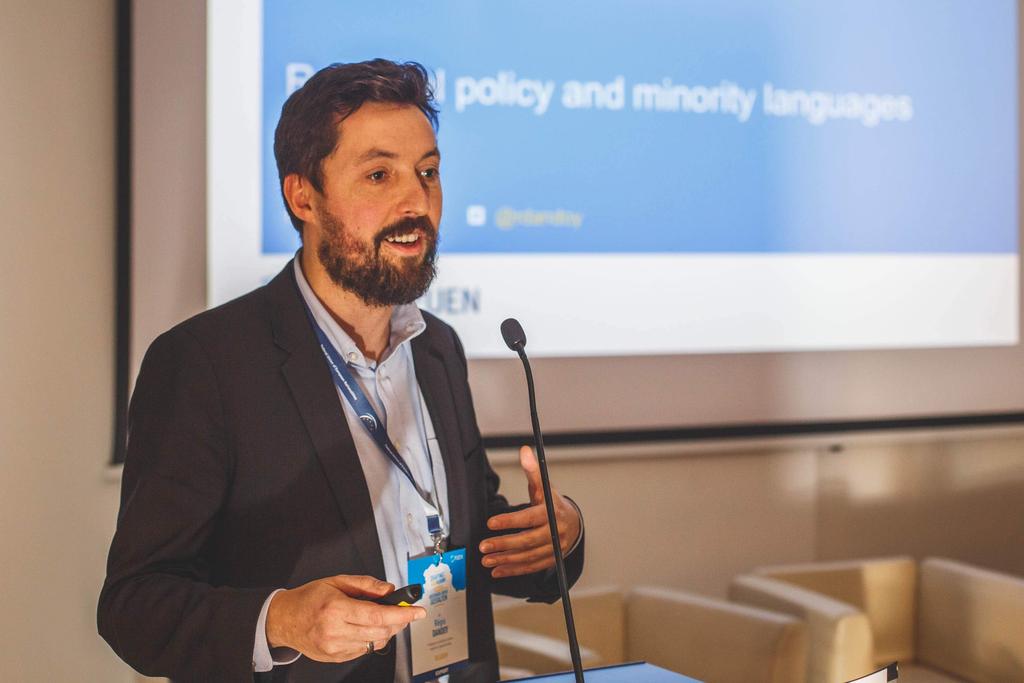
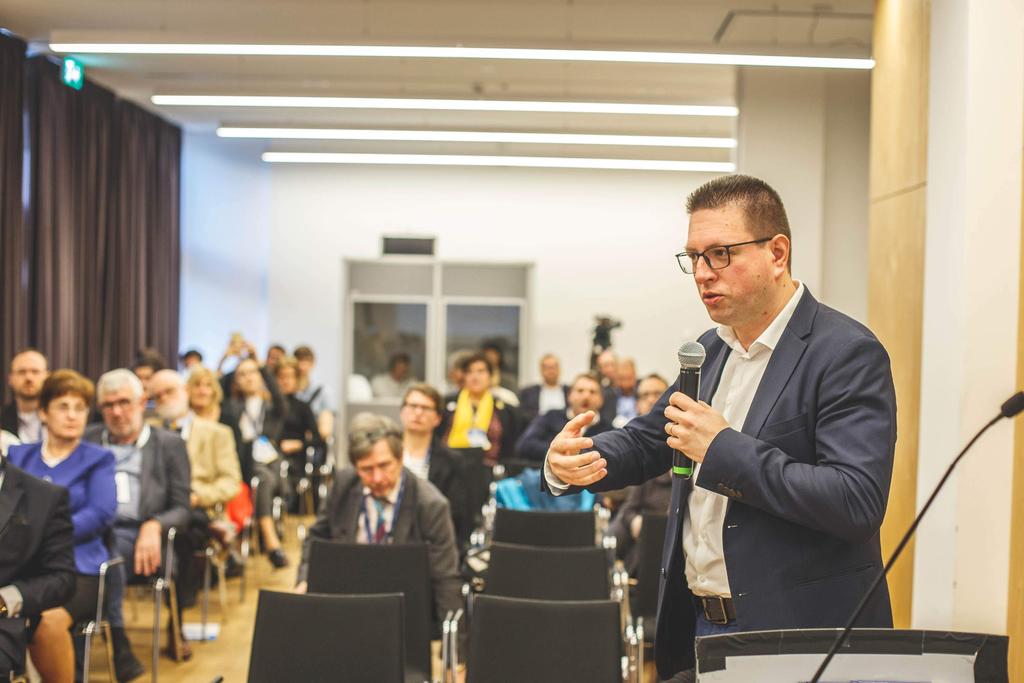
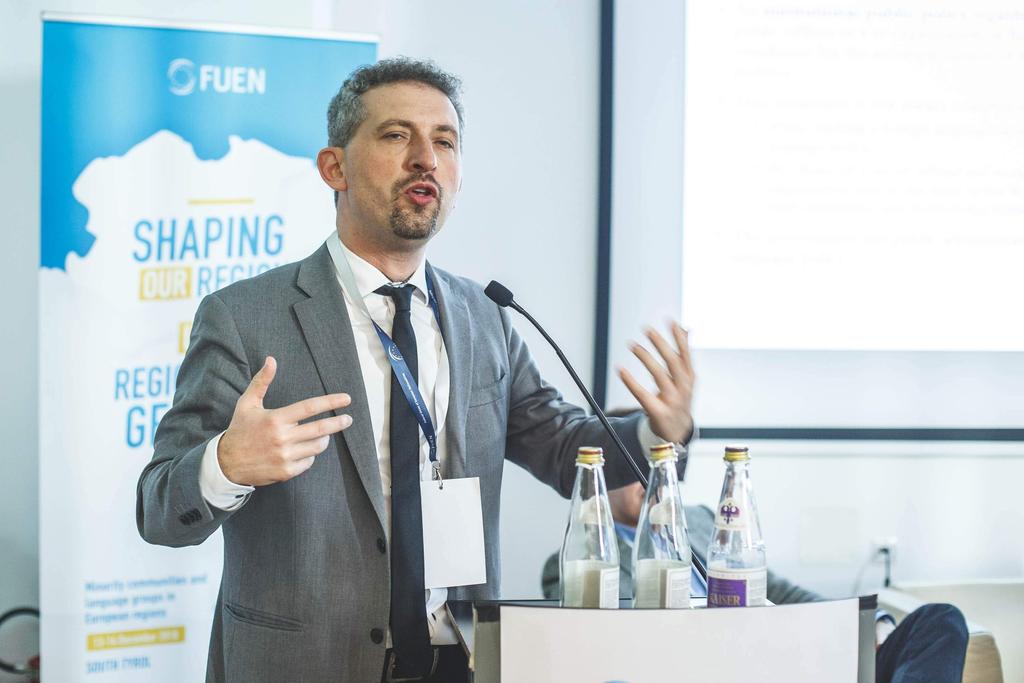
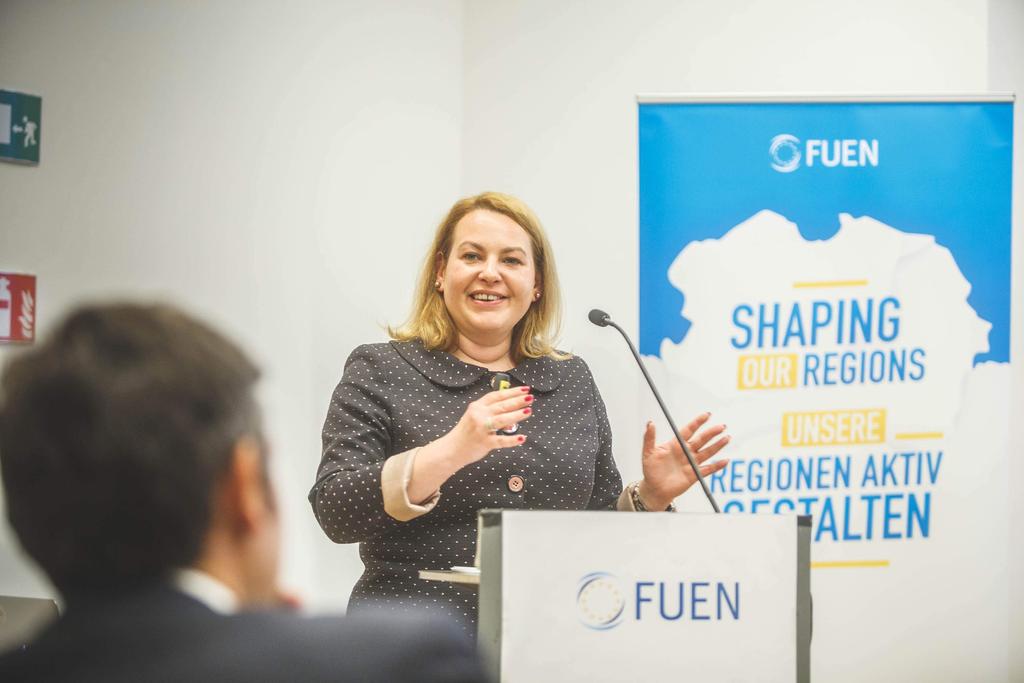
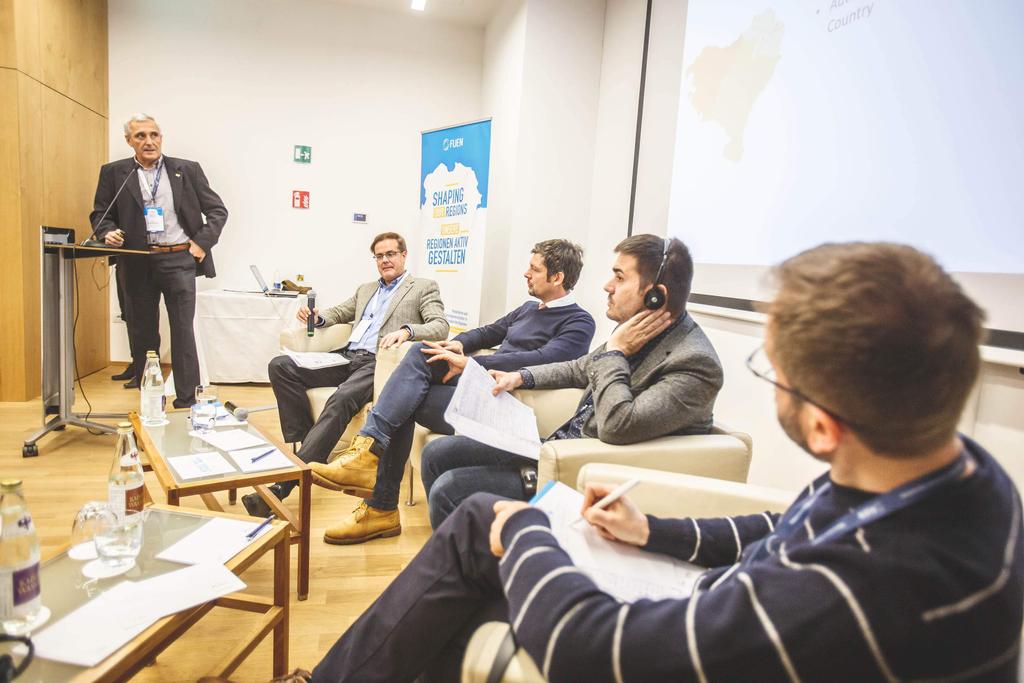
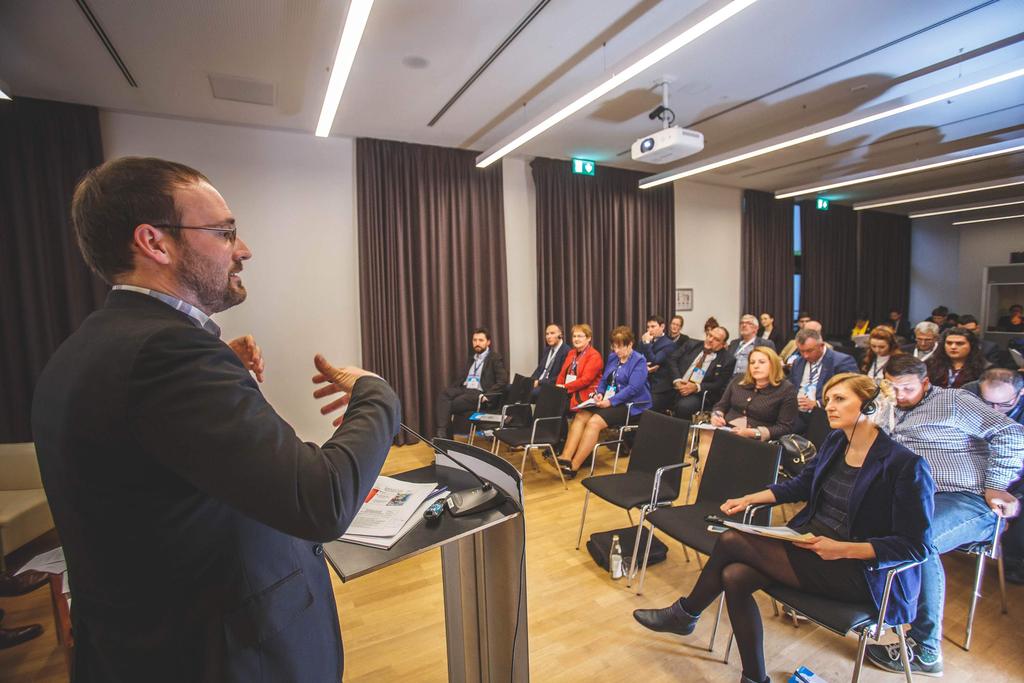
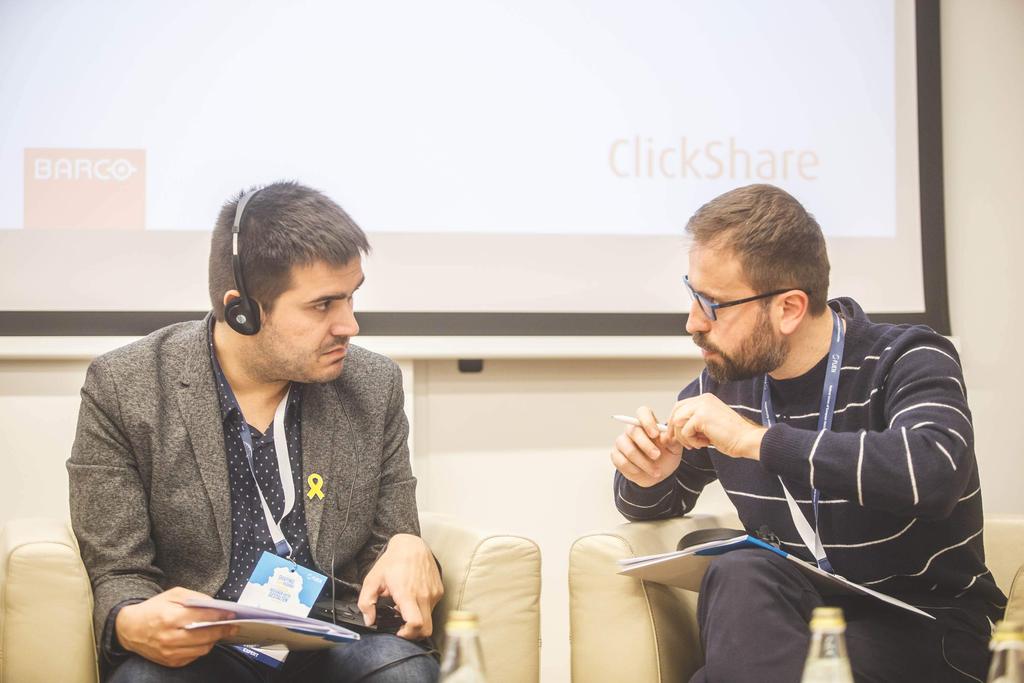
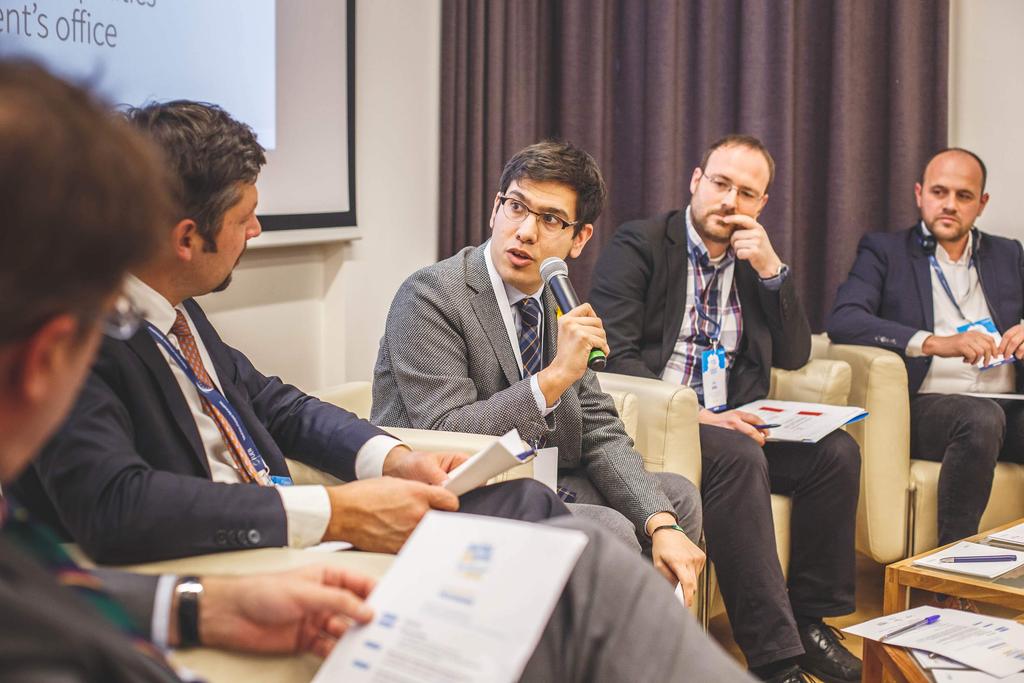
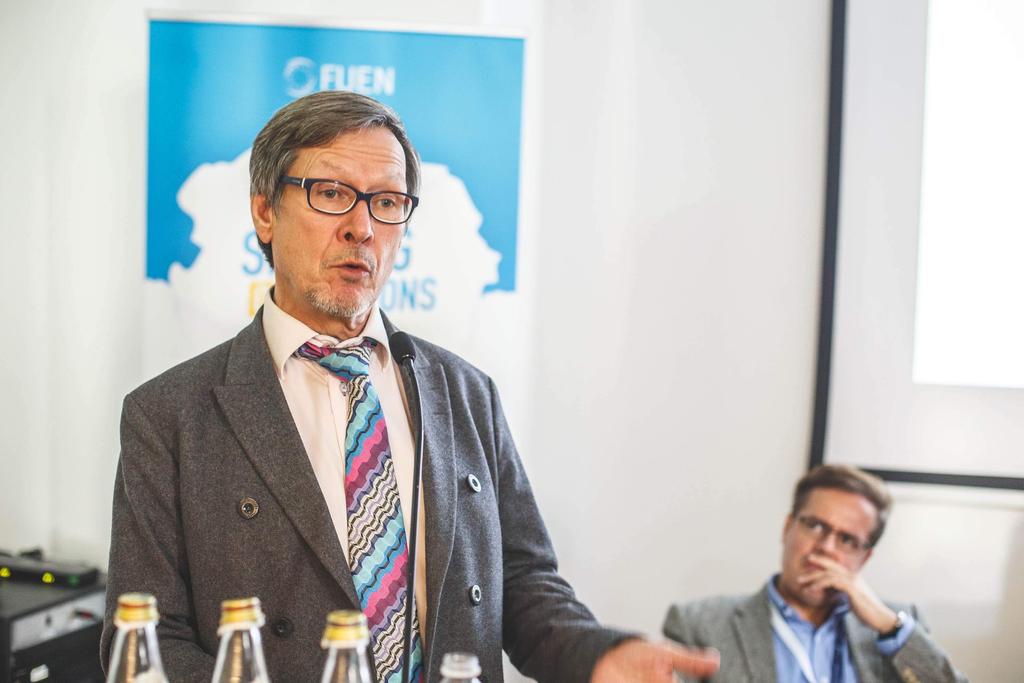
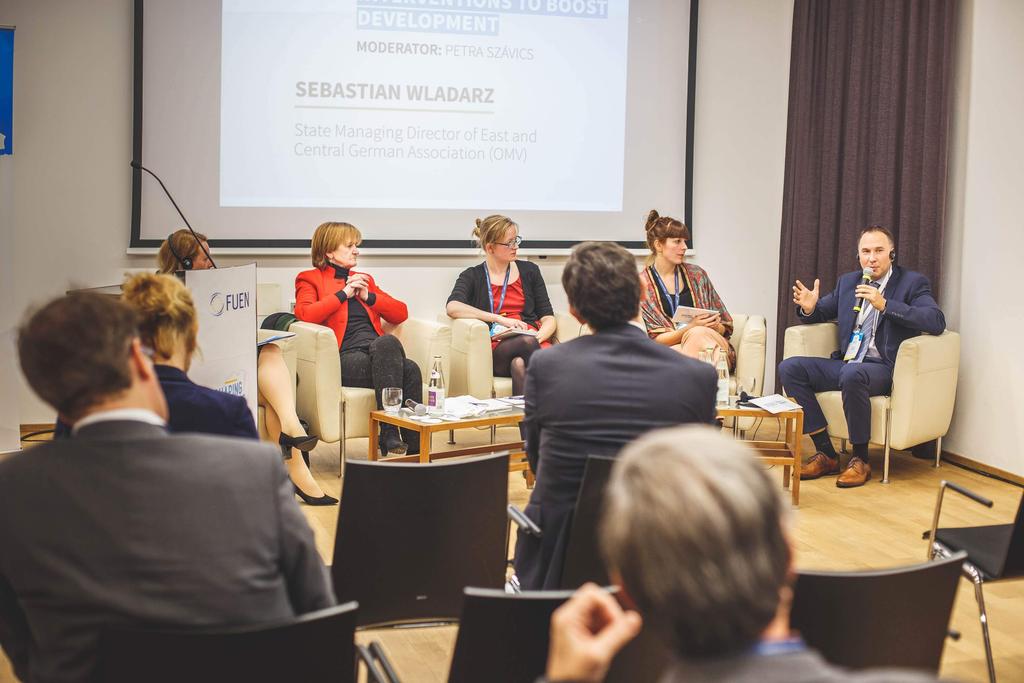

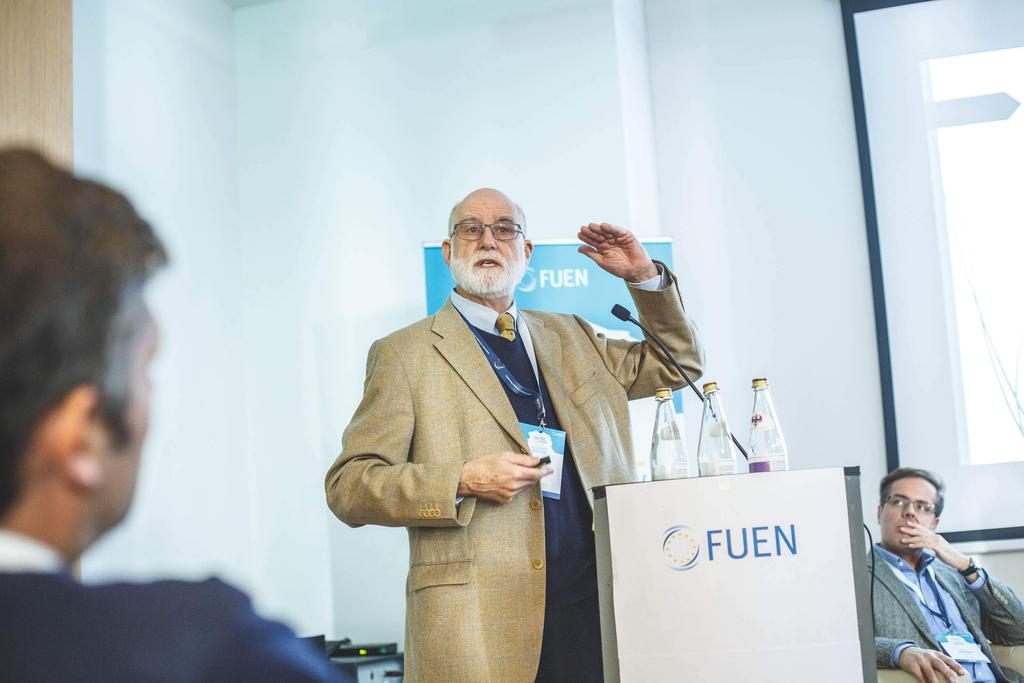
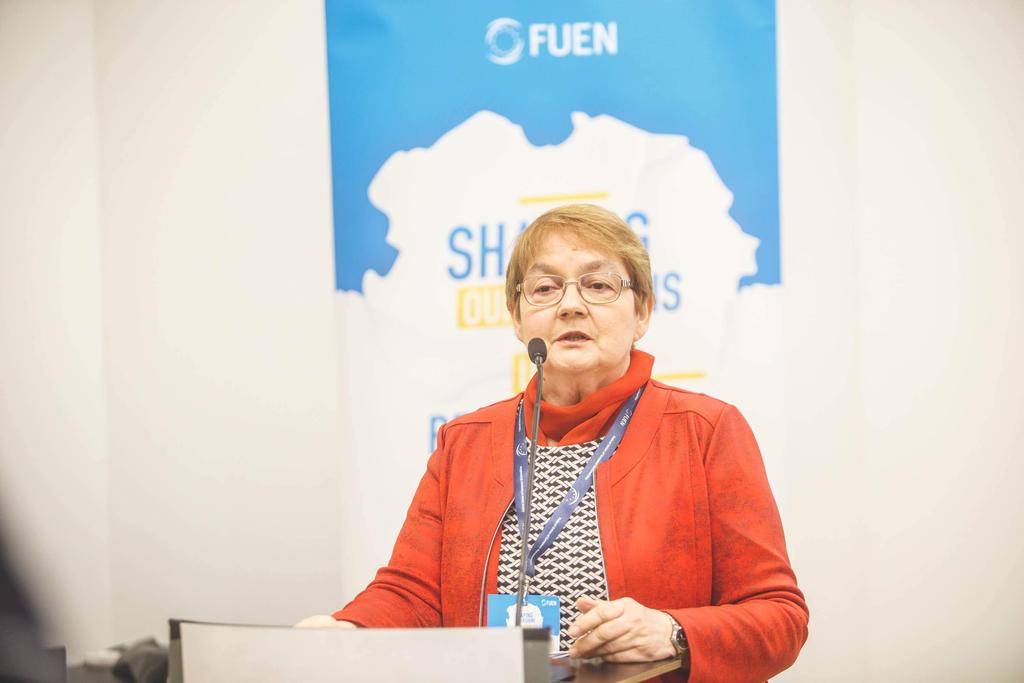
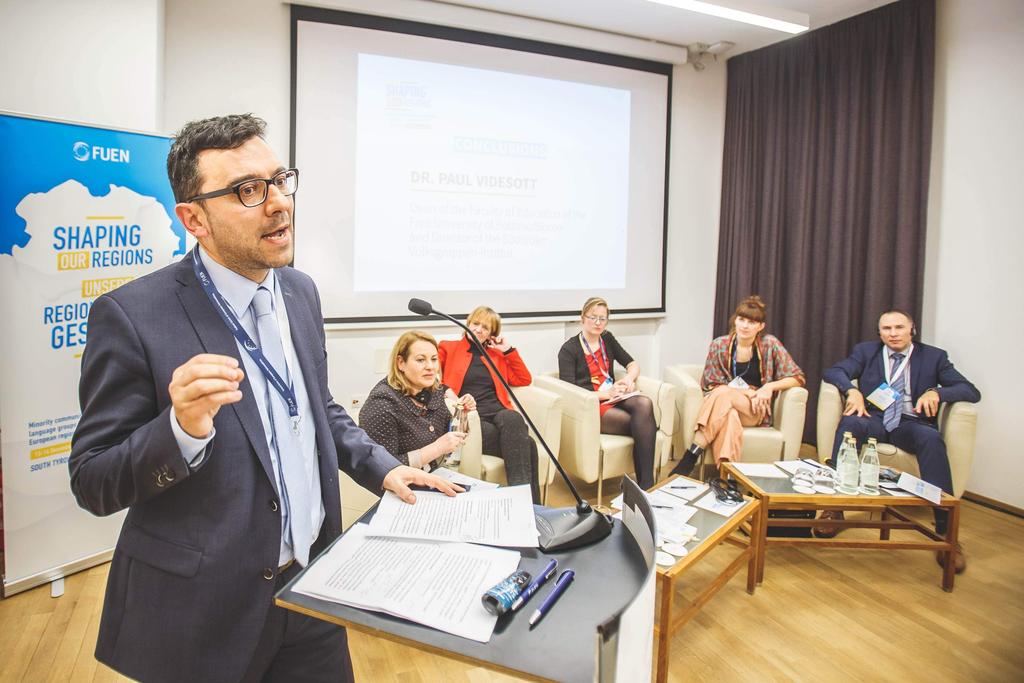

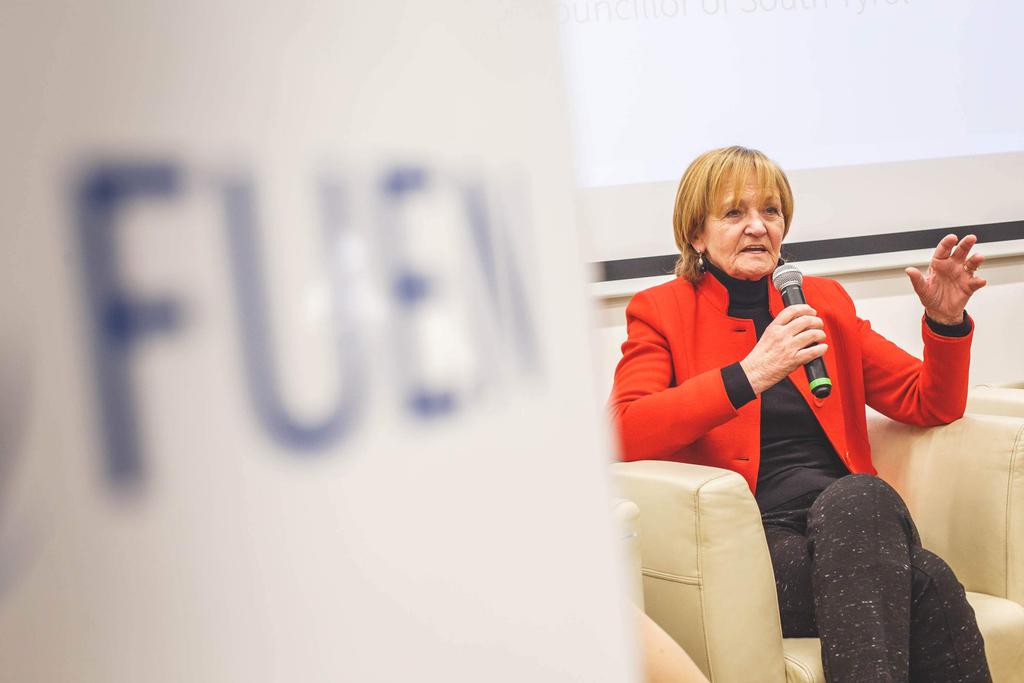
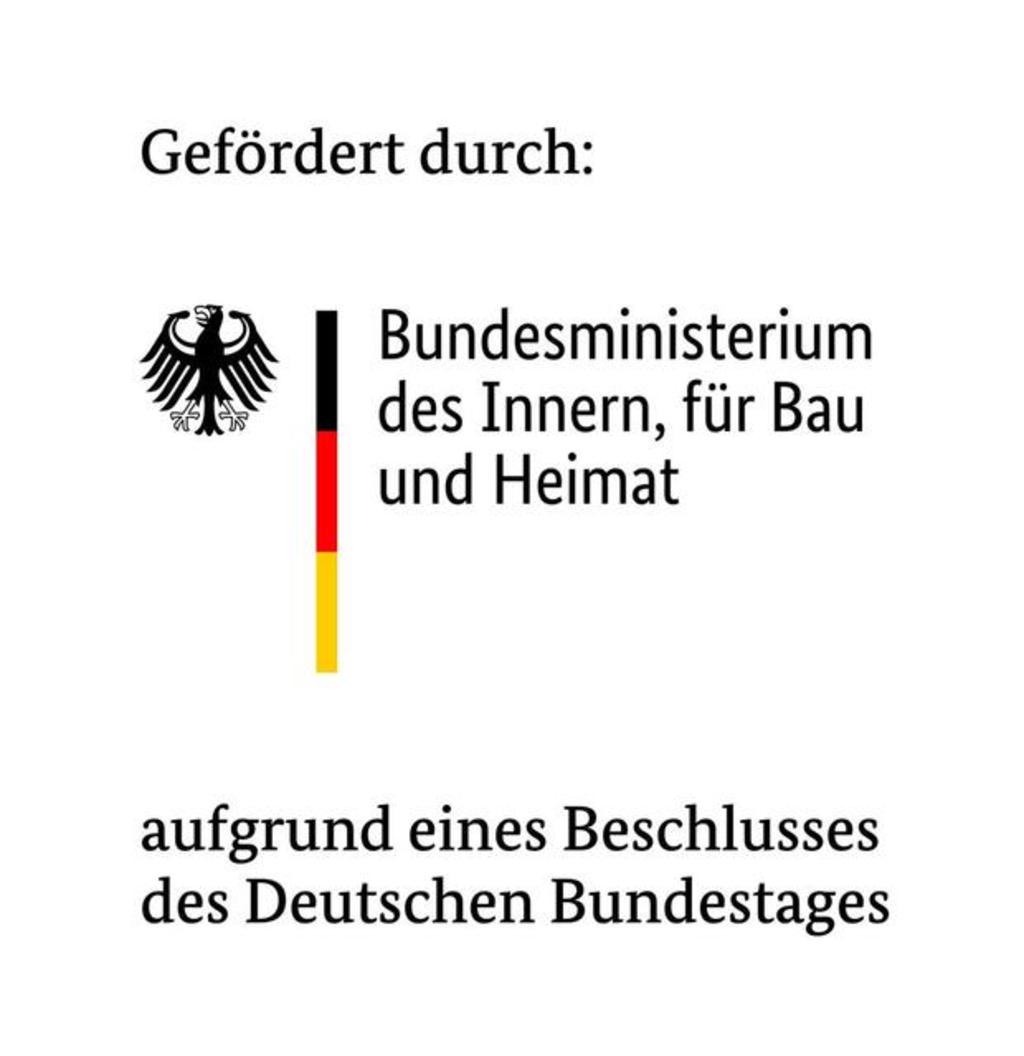
SAJTÓKÖZLEMÉNYEK
- FUEN calls for the inclusion of the Ladin language at the 2026 Winter Olympic Games
- FUEN Urges UN Special Rapporteur to Advocate for a Coherent EU Minority Protection Framework
- FUEN wishes you a peaceful Christmas season, restful days and a bright, hopeful start to the new year!
- FUEN calls on the EU to act over systematic ethnic-based land confiscations in Slovakia
- Women of Minorities conference in Budapest calls for structural change to ensure equal political participation of minority women
- FUEN President Olivia Schubert at UN Forum on Minority Issues in Geneva
- "Laboratory of Peace": 28th Seminar of Slavic Minorities held in European Capital of Culture Gorica/Gorizia
- Equality in Political Participation and Representation: Third “Women of Minorities” Conference to Be Held in Budapest
- FUEN Working Group on Education discusses challenges and future of minority schooling in Europe
- 28th Seminar of Slavic Minorities in Europe to take place in Gorica/Gorizia, Italy














